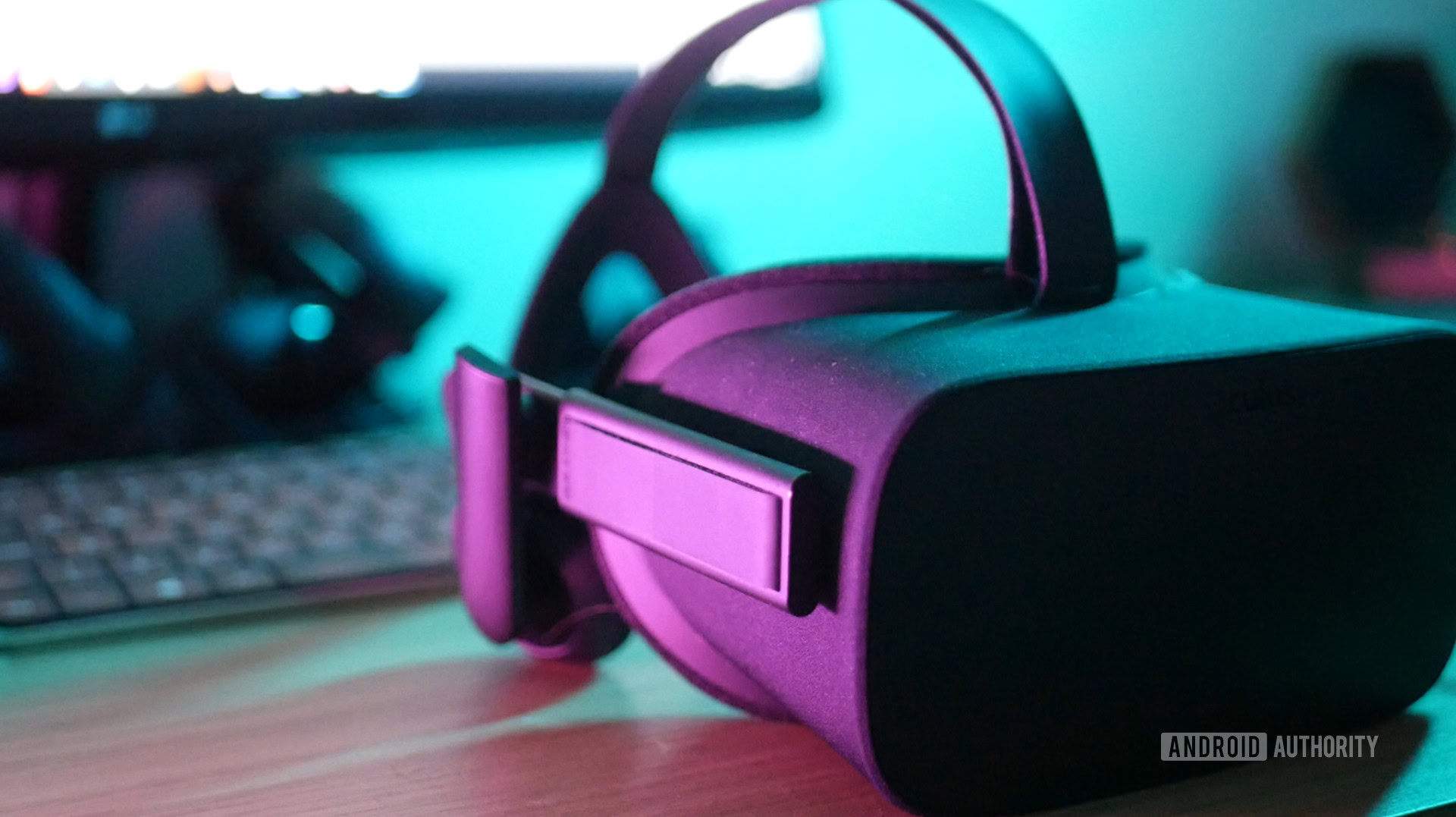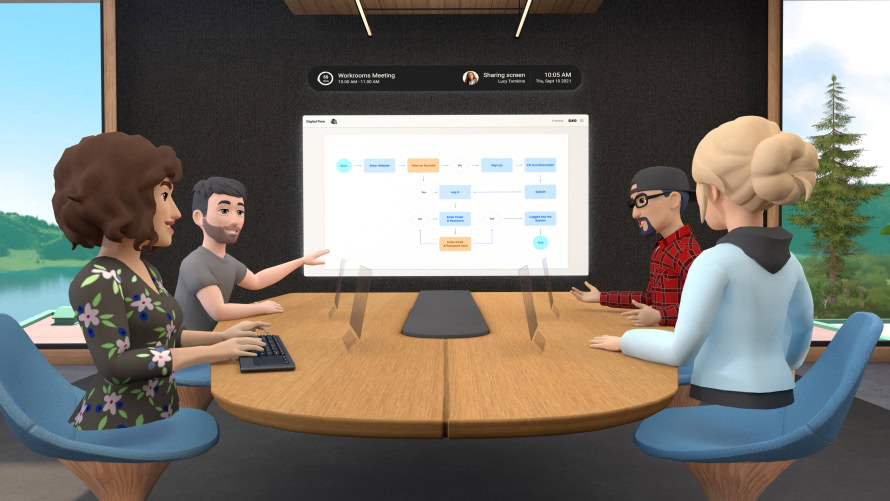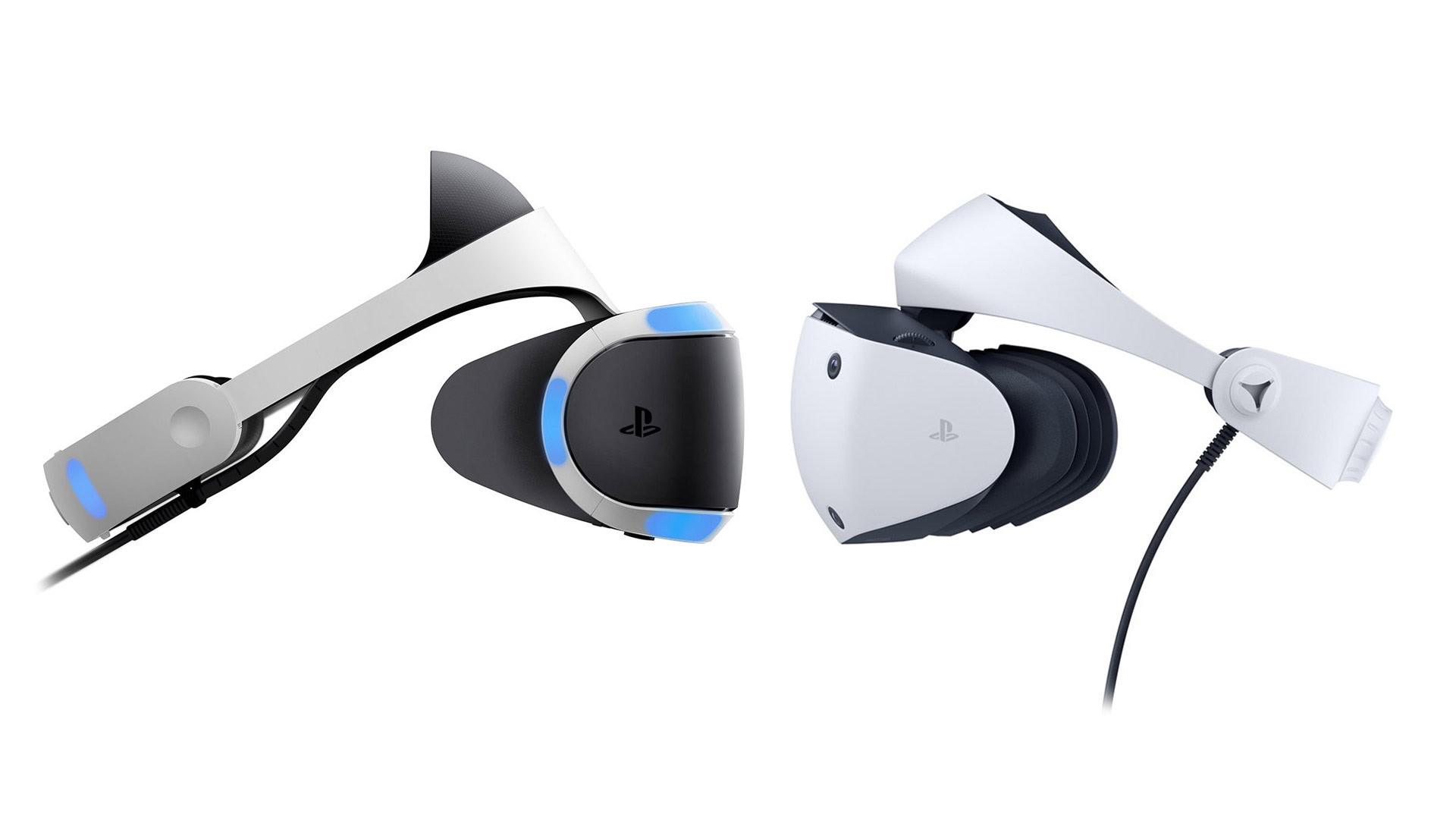Affiliate links on Android Authority may earn us a commission. Learn more.
In 2022, I stopped using my VR headset
Published onDecember 27, 2022

In 2022, millions of people have experienced VR, thanks to the affordability of wireless and standalone headsets like the Meta Quest 2. And just about anyone that has ever sampled the technology will agree that it has the potential to add a brand new dimension to gaming and entertainment. Even personally, I have to credit VR for creating some of my most memorable digital experiences. From piloting an X-Wing in Star Wars: Squadrons to spending countless hours just walking around real-life cities in Google Earth VR, I’ve spent over a thousand hours in the virtual world since buying an Oculus Rift in 2017. But half a decade later, 2022 was the first year I set down my headset in a drawer and nearly forgot about its existence.
I don’t seem to be alone either — popular VR games like Beat Saber have registered their lowest monthly average player counts (on Steam) since 2018. That’s a stark contrast given that overall VR usage reached an all-time high only twelve months ago. While we don’t have access to retention stats for non-PC VR users, I can’t imagine it looks much different on that front. The average number of new posts and comments per day on the popular r/OculusQuest subreddit has experienced a small, but noticeable, decline.
So what was the straw that broke the camel’s back? For me, it was mostly the gradual fatigue of playing the same kind of games over and over again. Moreover, the long gaps between new releases this past year meant that I simply ran out of reasons to put the headset back on my head.
Did you play any VR games in 2022?
A drought of new VR games

Earlier this year, Ubisoft announced that it was canceling its highly-anticipated Splinter Cell VR game, blaming uncertain economic conditions. Interestingly, the game was due to launch exclusively on Meta headsets, so the social media company likely signed off on the cancellation too. Was the likelihood of success so low that two multi-billion dollar companies felt compelled to pull the plug after funding development for several years? Ubisoft’s Assassin’s Creed VR avoided the axe, but the company hasn’t come forth with any details since the initial announcement in 2020.
This isn’t an anomaly either — there are virtually no blockbuster VR games on the horizon from the likes of EA, Epic Games, Bethesda/Microsoft, or other big names in the industry. All of these companies have one more thing in common: They haven’t released a new VR title in at least two years. The racing and flight simulation niches are perhaps the only exceptions, but that’s likely due to a much higher headset ownership rate within these communities.
The number of noteworthy new VR game releases has dropped precipitously since 2020.
Simply take a look at any list of best VR games and you’ll likely find the top positions still dominated by the likes of Beat Saber, Superhot VR, and Half-Life: Alyx. To be clear, there’s nothing wrong with games from 2019 and 2020 — I’d still recommend those titles to anyone starting out today. However, their continued dominance is an alarming reminder of how few breakthroughs we’ve seen in recent times.
When Valve released Half-Life: Alyx to critical acclaim, for example, everyone hoped it would revolutionize VR game design and motivate studios to take inspiration from its potential. But two years later, that remains an unfulfilled dream.
Meta, formerly Oculus, has a long history of funding exclusive games for its platform — and it has found great success with this approach. Platform exclusives like Lone Echo, Robo Recall, and The Climb were a big reason why I picked the Oculus Rift over HTC’s Vive headset in 2017. These days, we’re mostly getting ports of classic PC games that were originally designed for a 2D screen — and that’s hardly groundbreaking.
Meta split its focus between funding high-quality exclusive games and building out its metaverse platform. In 2022, it achieved neither.
While Meta has bankrolled some exclusives for the Quest platform in recent years, only a couple are still known to be in development — Rockstar’s port of GTA: San Andreas and Ubisoft’s Assassin’s Creed VR. To me, it seems as if the company is either content with its existing back catalog of games or has shifted its focus (and budget) to Horizon Worlds and other metaverse content instead.
Don’t get me wrong — I think VR is here to stay and there’s plenty of existing content if you’re considering buying a headset. It’s just a little disappointing to see the progress of the late 2010s slow down to such a trickle.
Future VR headsets: Mixed reality or mixed signals?

Like many others, I was initially drawn to VR because it allowed me to engage in experiences I can’t easily recreate in the real world. Using VR to participate in the metaverse, on the other hand, has never really appealed to me. After all, I can already socialize and collaborate in the real world without strapping anything to my face. But even though this is a sentiment many VR users share, headset makers don’t seem willing to back down.
Take the recently launched Meta Quest Pro, for example. With its $1,499 asking price, Meta is clearly not targeting casual VR users. For some context, that’s five times more expensive than the Quest 2’s aggressive $299 launch price.
Now, some may say that’s an unfair comparison — the Quest Pro has eye-tracking, a better passthrough camera for mixed reality, vastly improved optics, and other cutting-edge features that the Quest 2 lacks. But it’s also symbolic of a shifting focus at Meta — for example, the Quest Pro’s open design leaves much of the real world visible in your peripheral view. This could be useful if anyone ends up using the headset for collaboration or mixed reality. But if you only care about complete VR immersion, you’ll have to pony up an extra $50 for a full light-blocking accessory.
The Quest Pro is primarily designed for mixed reality, and intentionally stops short of fully immersing you in a virtual reality.
With this design decision alone, it’s evident that Meta wants the technology to outgrow its gaming roots and become useful in enterprise circles instead. And given that we’ve crossed the two-year threshold since Meta’s last consumer hardware release, it’s likely that we’ll see a Quest 3 teased sometime next year. Will the design of this headset heavily emphasize the metaverse and mixed reality experiences while sacrificing full immersion like the Quest Pro? Will it cost significantly more than the Quest 2? Only time will tell.
PlayStation VR 2: A silver lining?

If there’s one silver lining amidst all of this disappointment, it’s the upcoming PlayStation VR 2 platform. It seems to be everything a VR gaming enthusiast like myself could ask for. Sony’s first-generation PlayStation VR lagged behind other headsets even when it was first unveiled back in 2016. With just 180-degree tracking and movement limitations, most games were static or seated experiences. That’s no longer a concern with PS VR 2, which has full 3D tracking and some impressive on-paper specs. Sony doesn’t even face the same fierce competition this time around.
Sony's upcoming PlayStation VR 2 is a beacon of hope for VR gaming enthusiasts.
Unlike Meta, Sony also has no grand delusions about what its user base wants from virtual reality — quality gaming experiences. We’ve only got a glimpse of the titles coming to the platform, but things look rather promising. And if Sony follows up its launch title Horizon Call of the Mountain with more first-party games, it could make the PS VR 2 a no-brainer for millions of existing PlayStation 5 owners, myself included.
I’m still not thrilled about jumping from a mature VR ecosystem to a brand-new one. I’ve been hesitant to switch from my Oculus Rift to the Quest for this very reason, after all. It also doesn’t help that Sony’s new platform won’t be backward-compatible with the original PlayStation VR game library. But on the other hand, this might be our only shot at rekindling the broader gaming industry’s interest in VR. Will it be enough to convince studios to develop high-fidelity experiences once again? I sure hope so.